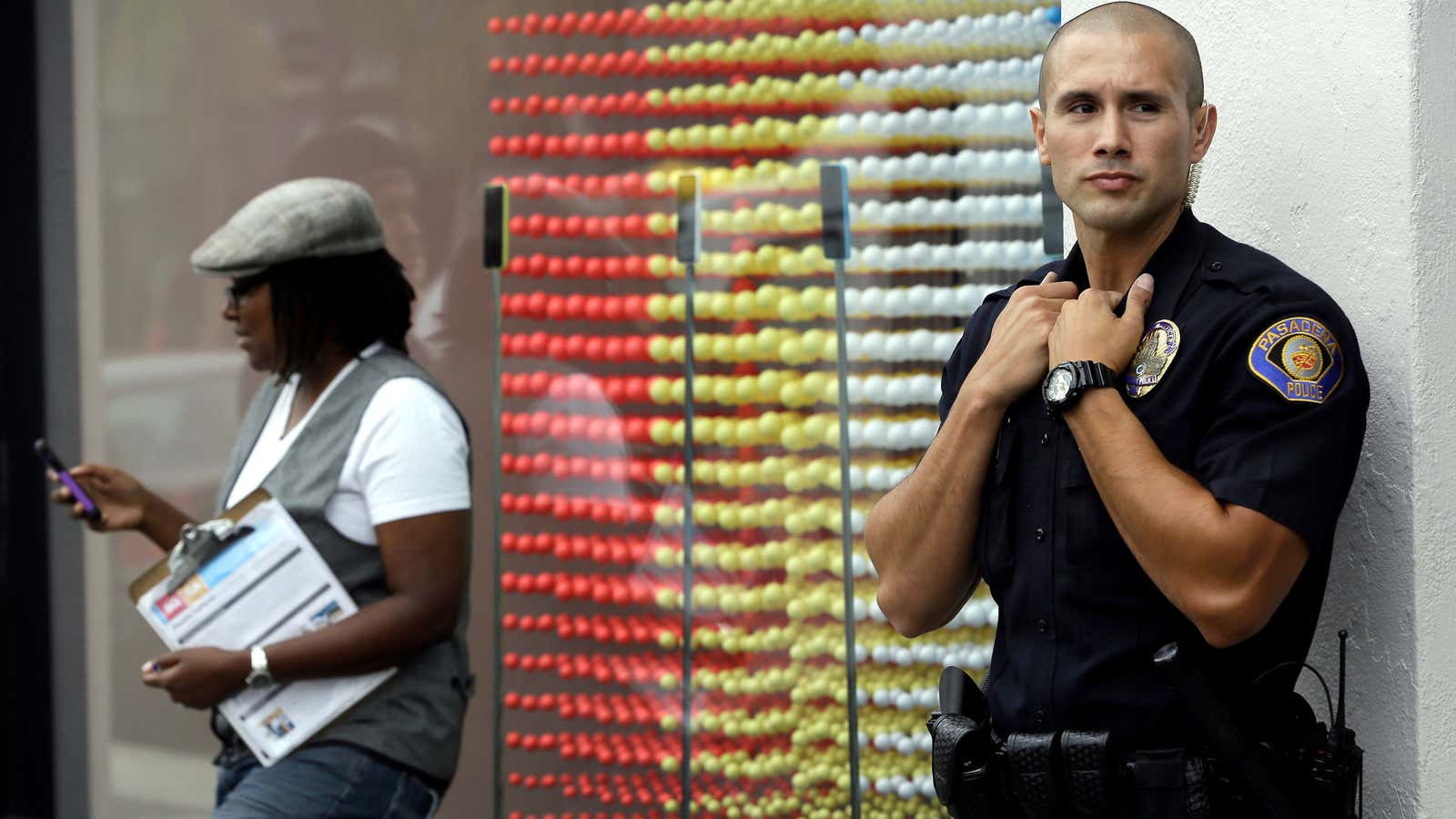If you get arrested in the United States, police officers can search you without waiting to ask a judge. Until today, that search might also include your mobile phone—an object that potentially contains everything from your e-mails to financial records to GPS coordinates of your travels. Indeed, it can hold or access more information about your life than you could possibly carry physically or even keep in a house.
The Supreme Court recognized today that the tiny computer in your pocket is very different from a notebook or your wallet, and ruled unanimously (pdf) in Riley vs. California that police officers can’t search a mobile phone without convincing a judge they have reasonable grounds to suspect it holds evidence of a crime. The case was brought on behalf of two men who were convicted of serious crimes when officers found incriminating pictures and communications on their phones after they were arrested for other offenses.
The government argued that officers should be allowed such searches in limited circumstances. However, the court was not convinced that officers would be put in danger if they didn’t access a phone’s information (a typical justification for warrantless searches) or that a phone could be searched for much the same reasons as a suspect’s car if he is pulled over, in order to preserve evidence of a crime. Mobile phones can be safely held separately from a suspect to avoid tampering, and the court even suggested that officers worried about remote-wiping technology could use “faraday bags” to protect the phone from outside signals.
In all likelihood, this decision won’t mean mobile phone searches are actually off-limits for cops—it won’t be hard for the police to convince a judge that a phone search is necessary if they have suspicion of a real crime. But it will mean that being detained for a minor crime won’t end with a fishing expedition into practically every aspect of your life. It’s a very modern clarification of the right guaranteed by the US founding fathers: To be secured against unreasonable searches of your person, house, papers—and iChat logs.
